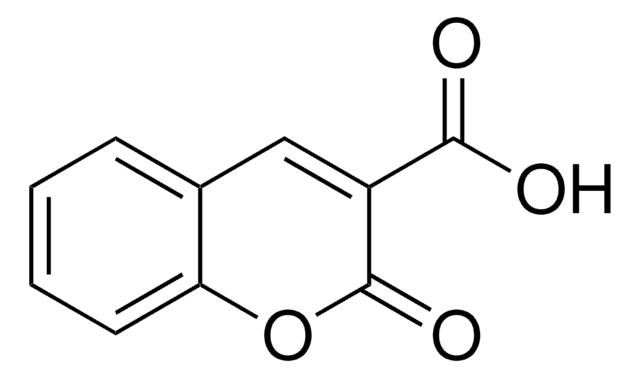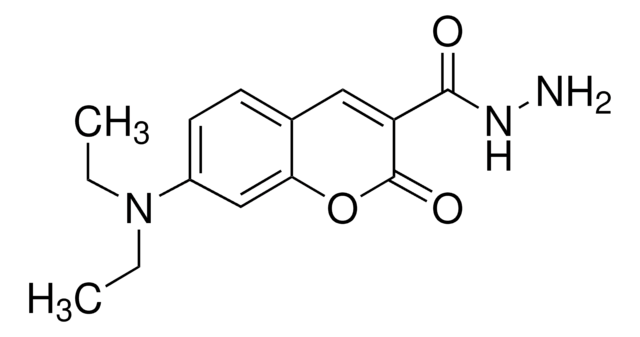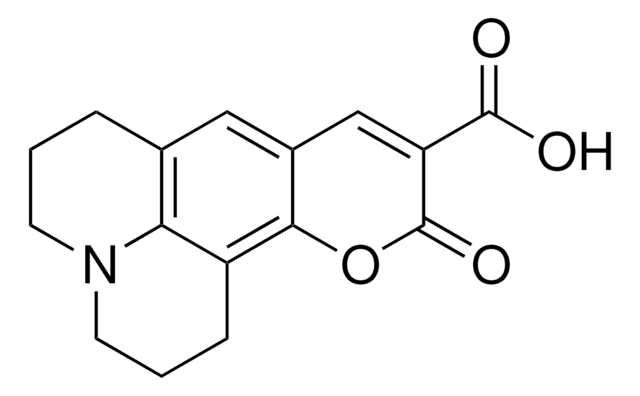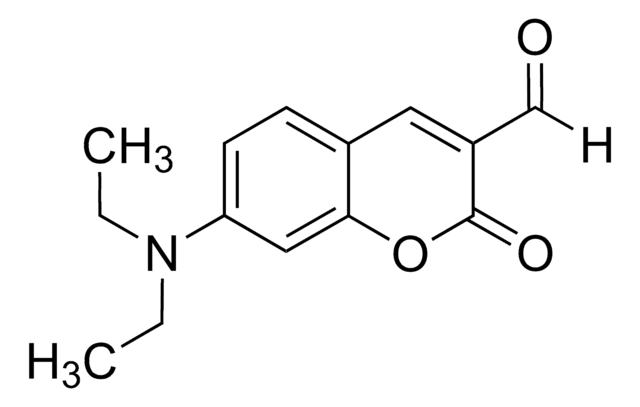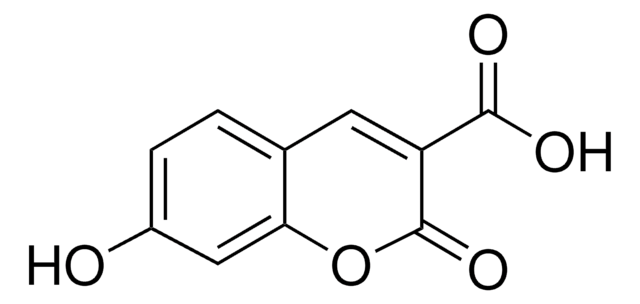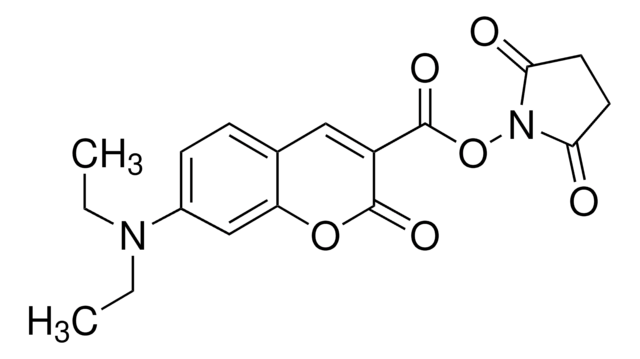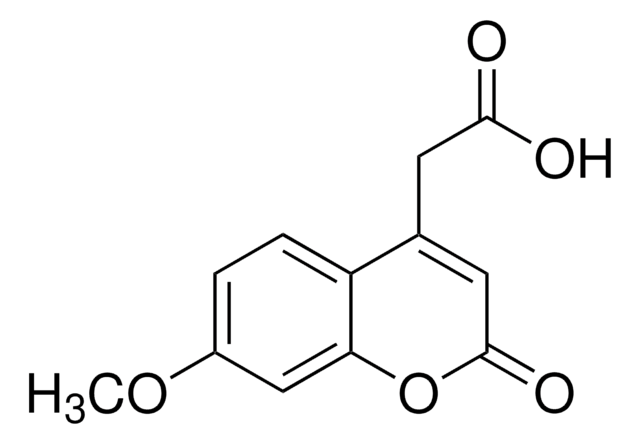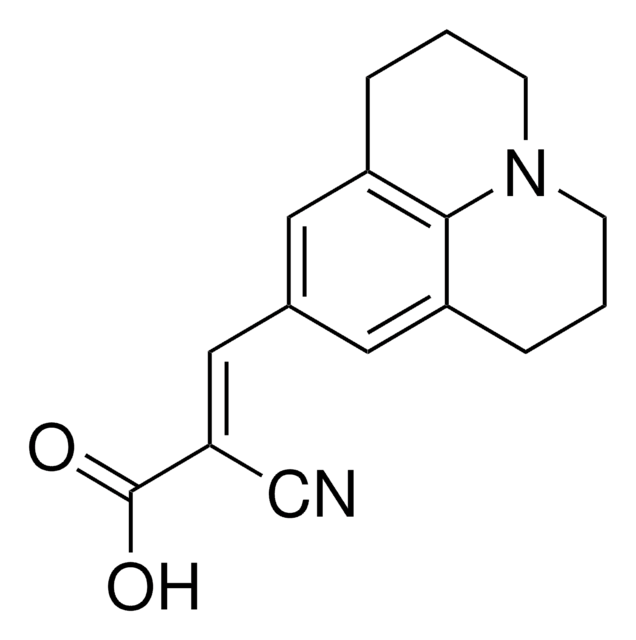36799
7-(Diethylamino)coumarin-3-carboxylic acid
BioReagent, suitable for fluorescence, ≥98.0% (HPCE)
About This Item
Recommended Products
product line
BioReagent
Assay
≥98.0% (HPCE)
mp
222-224 °C (dec.) (lit.)
solubility
DMF: soluble
DMSO: soluble
fluorescence
λex 409 nm; λem 473 nm in 0.1 M Tris pH 9.0
suitability
suitable for fluorescence
SMILES string
CCN(CC)c1ccc2C=C(C(O)=O)C(=O)Oc2c1
InChI
1S/C14H15NO4/c1-3-15(4-2)10-6-5-9-7-11(13(16)17)14(18)19-12(9)8-10/h5-8H,3-4H2,1-2H3,(H,16,17)
InChI key
WHCPTFFIERCDSB-UHFFFAOYSA-N
Application
Packaging
Other Notes
Storage Class Code
11 - Combustible Solids
WGK
WGK 3
Flash Point(F)
Not applicable
Flash Point(C)
Not applicable
Personal Protective Equipment
Certificates of Analysis (COA)
Search for Certificates of Analysis (COA) by entering the products Lot/Batch Number. Lot and Batch Numbers can be found on a product’s label following the words ‘Lot’ or ‘Batch’.
Already Own This Product?
Find documentation for the products that you have recently purchased in the Document Library.
Customers Also Viewed
Our team of scientists has experience in all areas of research including Life Science, Material Science, Chemical Synthesis, Chromatography, Analytical and many others.
Contact Technical Service